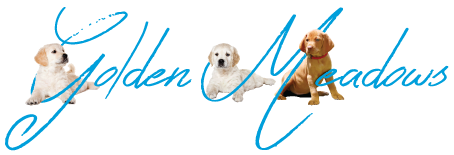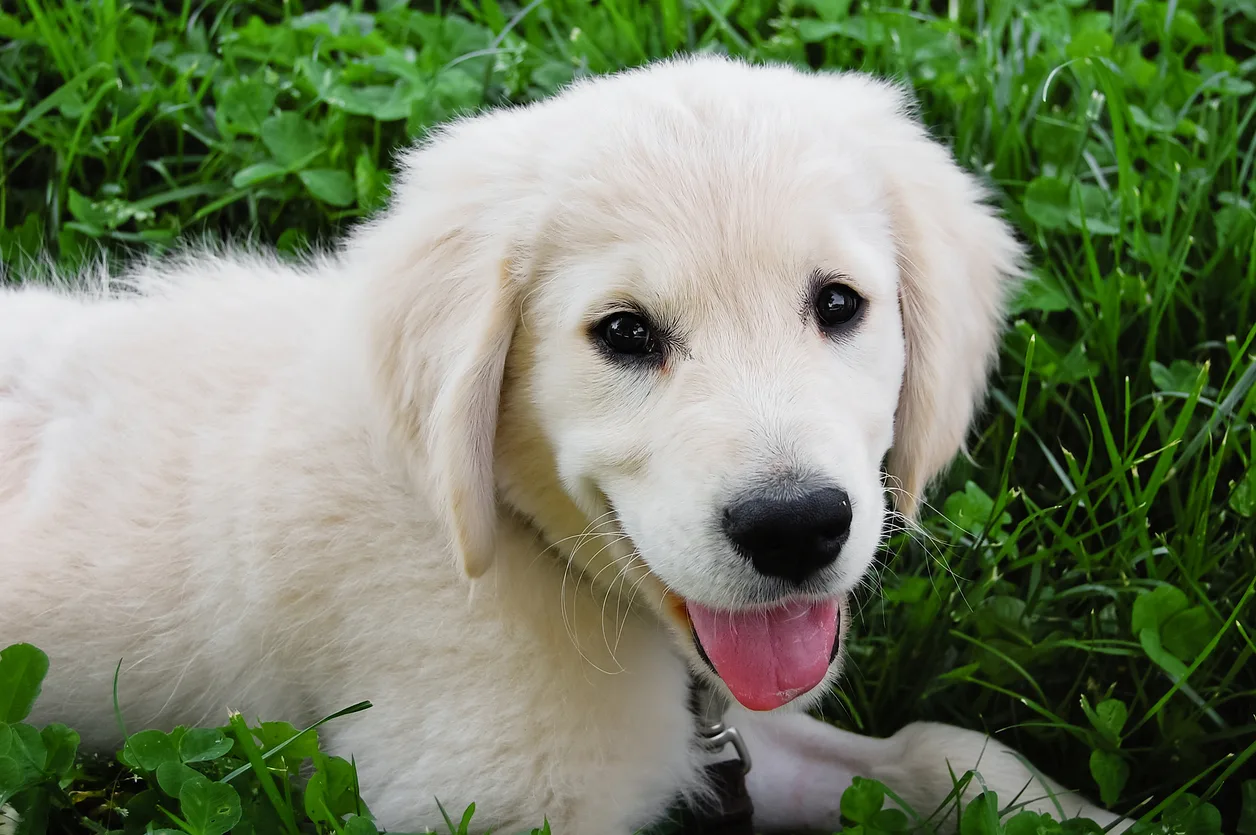You’re the proud new parent to a puppy. Congratulations on your adoption! Dedicate yourself to proper training, a healthy puppy diet, and loads of love and you’ll enjoy years of precious moments with your delightful little pup. The delights of puppyhood are many: long play sessions, hilariously clumsy limbs, snoozes in a beloved human’s lap, and long bonding sessions that bring the two of you closer together than ever before.
It’s difficult to find anything bad about puppyhood, at least at first glance. That’s why many canine carers find themselves surprised and struggling just a few days or weeks after adoption. Furry little darlings begin to chew everything in sight, knocking over your favorite vase in the process. They pee on the rug, tip their food over, roll in the cat’s litter box and then jump in your lap. Suddenly, you’re wondering what happened to the sweet little darling you adopted in the first place.
If you relate to this description, take heart: many of these behaviors are simply part and parcel with puppyhood. With preparation and patience, you can help your little fluffball grow up big, strong, and obedient (even if it seems a bit like a lost cause right now).
To help you start off on the right foot (or paw), we’ve created this list of 10 lesser-known things that new puppy parents typically don’t realize, as well as what to expect from your pup. Use it as a guide for getting through the challenging, yet cute, times of puppy parenthood.
Puppies Are Delicate; Handle With Care
New puppies are hilariously clumsy, regardless of their breed. Unfortunately, many breeds are also notoriously delicate, especially within the first three months of life. A young dog’s bones and growth plates lack density, and that can increase the risk for fractures and dislocations after innocuous-seeming accidents (like falling off the couch).
Reduce the risk of puppy fractures and other injuries by providing your dog with safe ways to climb up, like steps placed against one end of the couch. Lay out cushions below the seat; if he falls off, the cushions will break his fall. Use baby gates to block of stairs and other heights. Most importantly, be sure you know where your puppy is and what he’s into at all times, both indoors and out.
If your puppy does have a fall, watch him closely for limping, favoring a limb, or signs of pain. When in doubt, head to the vet to have him checked out!
Tiny Stomachs, Voracious Appetites
Puppies grow at an exponential rate — even faster than human babies, if you think about it. Consider that the average dog is full-grown by the time he or she reaches around one to two years. All of that growing requires an avalanche of calories, and that means your precious pup can seem a bit like a bottomless pit.
The downside to all this eating is that it can be very difficult to judge whether you’re underfeeding, overfeeding, or feeding the wrong food for your dog’s needs altogether. Be cautious about following instructions listed on commercial food bags; these very often prescribe more food than is necessary, but may produce underfeeding in particularly voracious growers.
Instead, focus on monitoring your dog’s weight and canine body condition. If he’s energetic, playful, and gaining weight steadily with only occasional spikes or plateaus, you’re most likely doing it right.
Feed a high-quality kibble and avoid grocery store brands whenever possible. Instead of giving high-calorie treats, supplement with dog-friendly fresh foods like blueberries, plain yogurt, boiled chicken, and steamed carrots.
Not sure which food is best? See your vet or breeder for recommendations!
Post-Puppy Stress Disorder? It’s Real!
After the birth or adoption of a human baby, new parents often experience high levels of stress, anxiety, or even outright depression. In severe cases, these emotions can turn into Postpartum Depression or even Postpartum Psychosis. These serious mental health conditions are triggered by a combination of rapid lifestyle adjustments, a lack of sleep, and acclimatization to parenthood, not to mention the quickly-changing hormone levels found in postpartum women.
Although it’s technically impossible to experience true PPD or PPP after adopting a dog, you certainly can and will experience higher levels of stress. That’s because new puppies don’t exactly come trained and perfectly obedient when they walk in the door! They chew, they fail to make it to the door on time, they pee when excited, they break housewares…all entirely by accident, of course. There’s a reason puppy shaming is a thing!
Of course, that doesn’t make it any easier to cope with your emotions when stressors are high. Especially when they’re crying all throughout the night and you’re deprived of sleep. Or when you just found your Christian Louboutin heels chewed to a pulp. So when these emotions hit, remind yourself that you’re not alone. New puppy parents often report feeling:
- A loss of control over life.
- Intense protectiveness towards the puppy.
- Anxiety at allowing others to care for the dog.
- Anger at a puppy who just isn’t training well.
- Despair at yet another accident on the carpet.
- Feeling isolated or lonely (lack of human connection).
- Stress about financial responsibilities (e.g. vet bills).
- Feeling like an inadequate pet parent.
Nearly every pet parent experiences these emotional swings. Like your dog’s chewing obsession, they, too, will pass with time as your dog ages and settles out, so, too, will you. If you’re really struggling, there’s absolutely no shame in seeking a talk therapist or venting to a good friend!
Puppies Eat Everything (Not Just Food)
Puppies are voracious eaters, but sometimes it seems as if they try to eat everything in sight (not just food). What you’re actually seeing is chewing behavior, and it often occurs in correlation with teething.
As puppies lose their milk teeth and begin to grow in permanent adult teeth, they can experience the same irritation, swelling, and pain as human babies experience. Chewing items they find in the world around them relieves that pain and soothes sore gums.
But that isn’t the only reason puppies chew. Like children, dogs explore the world with their mouths. They’ll try to chew, bite, or mouth just about everything they come across, if given the opportunity, especially when they’re young. Chewing the couch, your arm, your shoes, table legs, logs, grass, bugs, puddle water, toys, children’s books, blankets, and yes, even the classic homework is all part and parcel of puppyhood.
All of this random eating can lead to some pretty serious indigestion and even veterinary emergencies. In severe cases, dogs can experience bloat, perforated intestines, canine intestinal blockages, poisoning, and even insect stings within the mouth.
To prevent pups from chowing down, redirect your puppy when you catch him chewing inappropriate items. It’s also best to puppy proof any environment you play in for safety. At home, crawl around on your hands and knees…whatever you find in your line of sight is fair game for your puppy. Use these simple hacks to cover the most common concerns of new puppy parents.
- Use baby gates to keep pups sequestered from high-risk zones.
- Make a slit in PVC piping lengthwise and use it cover cords.
- Use a rubber band around cupboard knobs to keep them closed.
- Store harsh chemicals and cleaning products in plastic totes.
- Spray furniture edges with bitter apple spray.
- Keep clothing and kid’s toys locked away.
Remember: you are your pup’s best defense against harmful chewing. Keep a close eye on your puppy at all times, whether you’re home or playing at the park.
Puppies Need Routine, Consistency
In order for puppies to grow up healthy, happy, and confident, they need to know they can rely on you and trust you. The best way to cultivate attachment and trust is by establishing a daily life routine. This means having meals, taking a walk, playing, and attending doggy daycares at the same time or days all throughout the week as often as possible.
Below, are a few helpful tips on creating a routine for your puppy.
- Plan to stay home with your pup for at least 30 days. This gives both of you time to get to know each other, but it also ensures he isn’t left home alone during the most critical attachment period of puppyhood. Plus, it’s pretty fun, too!
- Unlike adult dogs, puppies need to eat around three to four times per day. Aim for a feeding at 7 a.m., 12:00 p.m., and 5 p.m. if at all possible. This balances your dog’s food throughout the day so he isn’t hungry between meals.
- Expect to at least offer your dog the option to go potty outdoors every two to four hours, even if he hasn’t officially started potty training yet. This creates a connection in his mind between “outside” and “potty.”
- Although dogs don’t become ready for official training efforts until a few months after birth, it’s okay to start using trigger words from around three months. Focus “sessions” more on fun and use basic words like “no” “come” and “sit” at first. If he shows signs of stress, turn it into a play session instead!
- Active living starts in puppyhood! Begin to create a routine for both you and your dog as soon as he comes home. Start with bi-daily 10-minute walks and slowly work up everyone’s endurance over the course of a few months. Young puppies do tire easily, so don’t go too far at first.
If you’re prepared for all the chaos owning a puppy can bring, you’re much more likely to greatly enjoy the experience. And oh, what an experience it can be! There’s nothing quite like the bond between a pet parent and pup who first connected just after birth.
Still have questions about whether puppy adoption might be right for your family? Speak with a breeder directly. Qualified breeders spend decades honing their puppy care skills, so they’re an amazing resource both before and after adoption. Trainers can also help you resolve stress points or issues if and when they crop up.

